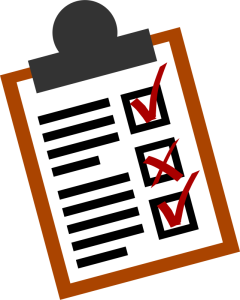Got your bankruptcy discharge recently?
The end of the bankruptcy case is the start of your new financial life.
Now, you’ve got work to do to maximize that fresh start.
Save your bankruptcy papers
The bankruptcy schedules listed everyone you owed money to when you filed. Those creditors got notice of your case. The discharge wipes out your liability to most of those creditors.
Save the creditor lists and the discharge order because chances are that some of your creditors will sell your discharged debt to a debt buyer who will try later to collect from you. That’s zombie debt.
Proof of notice to the original creditor and the discharge order should ward off zombies.
List the debts that weren’t discharged
You may have debts that the law doesn’t allow to be discharged: family support, recent taxes, and student loans . If you have these kinds of debts, they survive the bankruptcy discharge. The creditors retain their rights to enforce them.
If you are keeping a vehicle subject to a loan, you need to keep making those payments or the car will be repossessed.
The discharge order doesn’t say what debts survive; you need a list of what you still have to pay.
Verify lien balances
Liens on your assets survive the discharge. The creditor may not be able to sue you if you don’t pay, but they can seize the collateral if you don’t pay.
Find out what you owe on your car loan and your mortgage. Ask the creditor to resume sending bills or to restore online bill pay.
Rearrange banking
Online banking and automatic bill pay may have been disabled while you were in bankruptcy. There should be no barrier after your discharge to using electronic tools to manage your money.
Timely payment of your bills is one of the most important factors in rebuilding credit.
Set up automatic savings
Bankruptcy probably pointed out just how little net worth you have and how thin your safety net is.
Arrange for automatic savings for both an emergency fund and for retirement. Saving is easiest if you never see the money.
Have it deducted before the check lands in your checking account.
Join a credit union
Credit unions are in business of making loans to their members. Become a member now, so when you need to replace a car you have a history, a good history, with the credit union.
Credit union rates are usually better than the banks, and the profits flow to members.
Check insurance coverage
If you elected to surrender property through the bankruptcy, it’s possible that the property still stands in your name. If you are still the legal owner, you are potentially liable for injuries that occur on the property.
Make sure that you are protected with liability insurance until someone else goes on title. It would be a shame to have an uninsured accident spoil your fresh start.
Pull your credit report
Several months after your discharge, check your credit report. Get a free report at annualcreditreport.com, not the other guys.
Make sure all discharged debts shown on your report show a zero balance. The ugly history can properly remain, but you are entitled to a showing that you now owe nothing.
If old debt is improperly listed, get those credit report errors corrected.
Take advantage of the opportunity that bankruptcy has provided, and go forth and prosper.
More
Defend your discharge from zombie debt
IRA: Empowerment for your golden years






